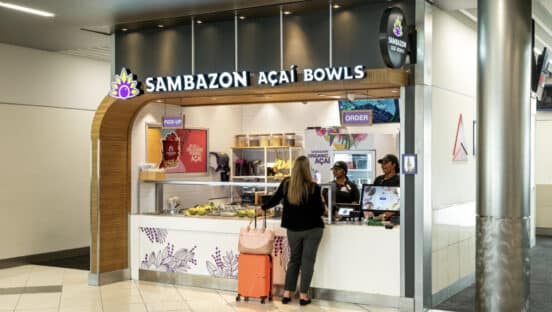Like much of the rest of the economy, the 2008 economic meltdown brought a massive slow-down to the quick-service franchise industry. The combination of tightfisted money lenders and general economic uncertainty put franchise businesses in a near impossible position when it came to accessing capital.
Today, as the economy continues to get back on its feet and dust itself off, industry stagnation is beginning to lift. Operators are beginning to see the light at the end of the tunnel as lenders begin to open up the coffers once again. And while the thaw around access to credit is well underway, the recent deep freeze has led some industry executives to actively revamp their approach to franchising and financing for franchisees.
For Burger 21, the biggest change came in whom it sought to become franchisees. First-time franchise owners have a particularly hard time getting financing, says Dan Stone, vice president of franchise development at the chain’s parent company, Front Burner Brands, based in Tampa, Florida. That meant that Burger 21, which was launched in 2009—during the full-on throes of the recession—had to find potential franchisees who were experienced and had access to capital.
“It was a steep mountain that we were facing and looking up at,” Stone says.
It was a steep mountain because finding franchise candidates who were independently wealthy or who were flush with investors left a thin pool from which to draw. Finding those candidates while also competing with other upstart fast-casual brands made for an especially difficult foray into franchising. So to build the franchise program, Stone says, Burger 21 took the emphasis off candidates with restaurant industry experience and shifted the focus to potential franchisees who had a successful track record in running a business.
“You can train the right individual,” he says. “After all, the whole concept of franchising is executing against a proven system and operating standards. We’re going to give you the recipes. We’re going to give you the product. We’ll help you build it, market the business, and leverage whatever equity that brand has to offer.”
He adds that owners who are rookies in the restaurant industry avoid comparing themselves to other brands, which can burden a system. What’s more, old habits don’t come into play in the Burger 21 operation. “There’s something to be said for someone who’s a sponge,” Stone says.
Stone, who’s worked in franchise development since 2005, says institutional lending practices pre- and post-recession have been like night and day. Whereas companies had previously been able to provide potential franchisees with a list of multiple lending sources—institutions that have approved a brand concept and business plan—the economic implosion meant the “idea of a preferred lender relationship virtually went extinct,” he says.
To help finance their business, Burger 21 franchisees have found success getting loan approval from regional institutions. While borrowers see the beginning signs of an improved lending environment from larger, more national lenders, Stone says, that side of the equation has yet to play out.
“We’re not getting the reception from some of those national players yet,” he says.
Other upstart brands appear to have come to the same conclusion. Last year, Cheshire, Connecticut–based Wayback Burgers established a partnership with small-business lender and business banking institution Stearns Bank. The idea behind the partnership was to provide franchise owners with a straightforward means to access credit.
By the end of this year, the better-burger brand, which counts more than 100 locations in 24 states, plans to end the year with more than 250 sold units. More recently, Wayback and Stearns announced a “strengthened partnership” designed to fuel the growth trajectory.
For Denver-based Asian fusion restaurant Teriyaki Madness, the Franchise Registry is a critical component in steering owners toward financing options. The Franchise Registry provides owners with information on more than 5,000 lenders.
While CEO and cofounder Rod Arreola has put a premium on the establishment of relationships with banks and financing companies, a spokesperson says, Teriyaki Madness further works to help owners with financing by providing business plan templates to any local lending institution with whom a franchisee might be working.
Another feature of the Franchise Registry is the FRANdata database. Small Business Administration (SBA) lenders can use FRANdata to access corporate credit reports, a necessary document in obtaining a loan. This streamlines the paperwork process, making it easier for owners to tap SBA-backed funds.
While the majority of its owners finance through SBA-backed loans, Toledo, Ohio–based Marco’s Pizza opted to take a much more proactive route in terms of lending options. Through creation of its own captive leasing business and loan loss guarantee company, the 500-plus unit chain made access to funding possible for its franchisees at a time when bank access was waning.
“We were definitely ahead of the curve in starting our own leasing company when the recession hit,” says Ken Switzer, vice president and CFO of Marco’s Pizza. “It helped provide funding for a significant number of stores that would otherwise have not opened. Immediately after the financial markets crashed, we formed a captive loan loss guarantee company to guarantee bank loans. This made it much easier to convince bank credit committees to lend to our franchisees.”
Post-recession, lenders like First Financial Capital, based in Park Ridge, New Jersey, have been glad to start lending again. President Tom Schuldt says First Financial still focuses lending efforts toward established franchise owners—those who’ve been in the industry for at least three years—by offering a range of loan types and terms.
Offering a minimum loan size of $100,000, First Financial provides loans purposed for everything from equipment and real estate to acquisitions and remodels.
“We really take a consultative approach,” Schuldt says.









